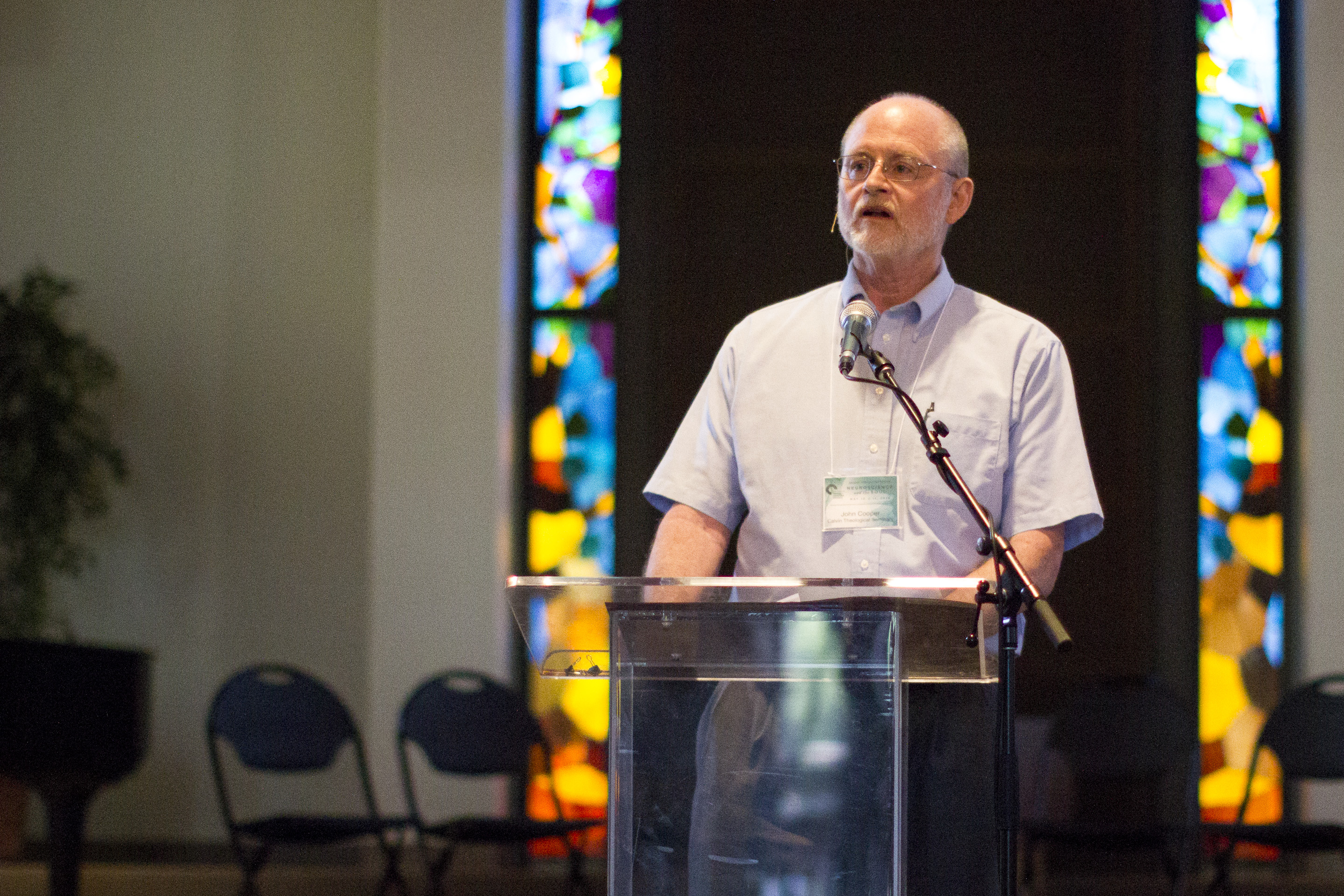The Center for Christian Thought wrapped up its exploration of this year’s theme, “Neuroscience and the Soul,” with its second annual conference last weekend — the culmination of research and public lectures that have been held throughout this year.
Prominent scholars from major universities spoke at the conference, including Richard Swinburne of Oxford University, William Hurlbut of Stanford University, Dean Zimmerman of Rutgers University and Timothy O’Connor of Indiana University.
Swinburne, Zimmerman and O’Connor are three of the leading Christian philosophers of our era, according to CCT associate director and philosophy professor Thomas Crisp.
“We’re having…world-class academics presenting to us,” Crisp said.
Crisp explained that a conference on this theme is important because of the “rumblings coming from the sciences” that say historic Christian teaching on the nature of humanity, the body and the soul is now disproven.
Swinburne echoed this concern, noting that many scientists want to tell us everything we do is simply caused by our brain states. This is called determinism. In such a view, humans can make no decisions on their own accord.
“It’s not really up to us, according to this view. It’s all about our brain states caused this, and our brains states are caused by our genes and our environment, and this happens quite independently of us,” Swinburne said.
CONFERENCE ENCOURAGES HIGHER THINKING
Swinburne thinks this view is false, and he offered a philosophical argument against such a position.
“I think that our behavior couldn’t be determined by our brain states alone. It must be a matter of our thoughts and intentions, but that there couldn’t be any scientific laws that we could know about whereby our thoughts and intentions affect what we do,” Swinburne said.
He embraces human freedom instead, which he thinks is a Christian view.
“It’s up to us what we do. We choose whether to do this or that,” Swinburne said.
Attendance fluctuated depending on the session, and the audience primarily consisted of graduate students, faculty and other adults. Very few undergraduate Biola students showed up to the conference.
“At the end of the school year, it’s really hard to want to go to some sort of extracurricular thing outside of homework and chapel requirements,” said senior Christian ministries major Kristen Katchadourian, who attended William Hurlbut’s lecture on Saturday.
Hurlbut is a physician and ethicist who served on the President’s Council on Bioethics for the Bush Administration. He is known for his advocacy of alternative nuclear transfer, a form of stem cell research that does not destroy embryos in the process. His lecture was entitled “The Brain, Consciousness, and Human Meaning: Case Studies from Neuroscience.”
A MULTIDISCIPLINARY PERSPECTIVE
CCT communications director Evan Rosa said that the issues addressed at the conference are important for undergraduates to consider, given the unique spot they are at in life.
“They’re at a time when they’re being exposed to the questions that can be ignored in their youth but can’t be ignored in their adulthood. What does it mean to be human? Do we have a soul? Are we free? How am I supposed to integrate the traditions of my faith with contemporary science?” Rosa said.
These types of questions make the theme “Neuroscience and the Soul” interesting to all kinds of people, according to CCT director Gregg Ten Elshof. The theme also engages many different kinds of scholars.
“Neuroscience and the soul: folks in psychology, in the sciences, in theology, in philosophy — there all kinds of exciting work going on. It makes an exciting topic for multidisciplinary conversation,” Ten Elshof said.
Such a multidisciplinary perspective pleased Swinburne.
“I like the idea that they have different faculty — some philosophers, some psychologists and some religious,” Swinburne said, noting that such diversity allows for good learning to occur.
Next year’s theme will focus on “Psychology and Spiritual Formation,” and the 2014-2015 theme is “Intellectual Virtue and Civil Discourse.”







